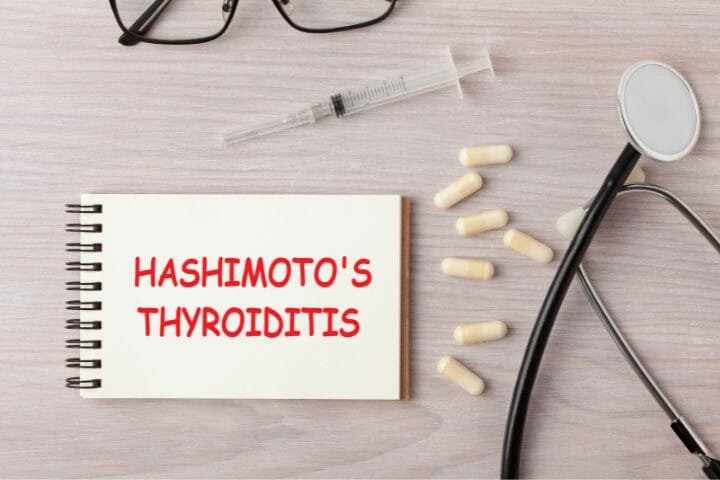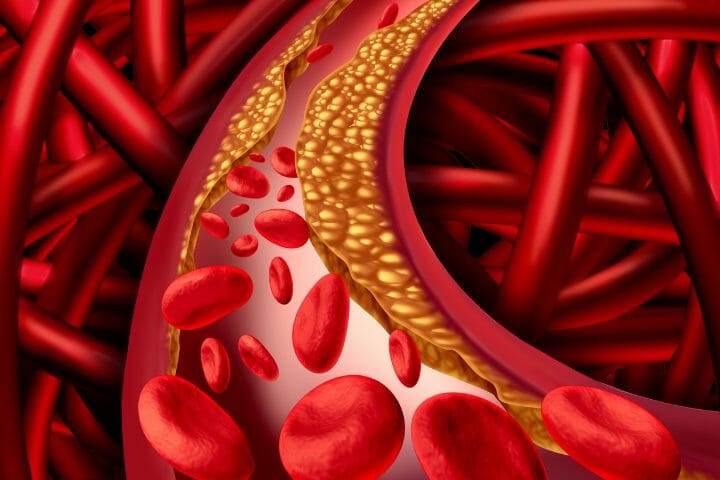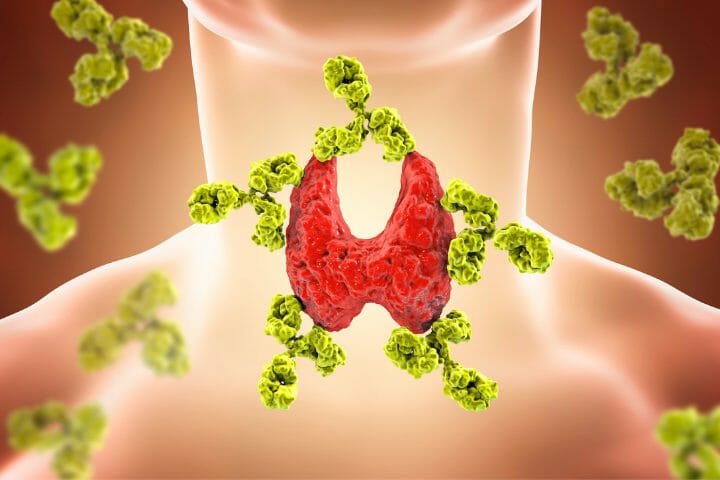Hashimoto’s disease is an autoimmune disorder that causes several complications in the thyroid gland. Can you get disability for Hashimoto’s disease? The answer is that it depends on the severity of your case and your medical history. Read on to know more
Contents
Did you know that 1-2% of people in the US are affected by Hashimoto’s disease? Many people are unaware of this autoimmune disorder.
But if you happen to suffer from it, there may be some good news for you. You may be able to get disability benefits for Hashimoto’s disease. Keep reading to learn more about this condition and how you can apply for benefits.

What Is Hashimoto’s Disease?
Hashimoto’s disease, also known as chronic lymphocytic thyroiditis, is an autoimmune disorder that affects the thyroid gland. The disease is named after Japanese physician Hakaru Hashimoto, who first described it in 1912.
The thyroid gland is a small butterfly-shaped gland located in the front of the neck. It produces hormones that regulate the body’s metabolism.
In Hashimoto’s disease, the body’s immune system attacks the thyroid gland, causing inflammation and damage to the gland. This can lead to a decrease in hormone production, resulting in various symptoms such as fatigue, weight gain, and depression.
Hashimoto’s disease is the most common type of thyroiditis and affects more women than men. It is most common in people of Ashkenazi Jewish, Japanese, and Korean descent. The exact cause of the disease is unknown, but it is believed to be a combination of genetic and environmental factors.
There is no cure for Hashimoto’s disease, but treatment can help to manage the symptoms. Treatment typically involves taking thyroid hormone replacement medication and making lifestyle changes such as eating a healthy diet and exercising regularly. In some cases, surgery may also be necessary to remove part or all of the thyroid gland.
Symptoms Of Hashimoto’s Thyroiditis
One of the most common symptoms of Hashimoto’s thyroiditis is fatigue. This can be caused by several factors, including anemia (low red blood cell count), low thyroid hormone levels, and sleep disturbances. Other common symptoms include weight gain, cold intolerance, constipation, dry skin, and hair loss.

Hashimoto’s thyroiditis can also cause a goiter, an enlargement of the thyroid gland. Goiters are usually not painful but can cause difficulty swallowing or breathing if they become large enough.
In some cases, Hashimoto’s thyroiditis can lead to hypothyroidism, when not enough hormones are produced in the body.
Hashimoto’s thyroiditis attacks the thyroid gland. Hypothyroidism can cause various symptoms, including weight gain, fatigue, dry skin, and constipation. It can also lead to goiter formation.
Symptoms
The most common symptom of Hashimoto’s thyroiditis is fatigue, but the condition can also cause weight gain, cold intolerance, constipation, dry skin, hair loss, and goiter formation. In some cases, Hashimoto’s thyroiditis can lead to hypothyroidism.
Treatment
Treatment for Hashimoto’s thyroiditis typically involves taking levothyroxine, a synthetic form of thyroid hormone. Levothyroxine replaces the Thyroid Hormones that your body can no longer produce on its own. Hashimoto’s thyroiditis is a lifelong condition, so you will need to take levothyroxine for the rest of your life.
You might also like to read: Can You Get Disability For Autoimmune Disease?
Consequences of Hashimoto’s Disease
Hashimoto’s disease can have several consequences if not treated properly.
Hypothyroidism
One of the most severe complications is hypothyroidism. Hypothyroidism is a disease where the thyroid gland stops producing the normal level of hormones. This can lead to several problems, including weight gain, fatigue, and depression. If left untreated, hypothyroidism can be very dangerous and even fatal.

Graves’ Disease
Another potential complication of Hashimoto’s disease is Graves’ disease. This is an autoimmune condition that affects the thyroid gland differently and can cause symptoms such as bulging eyes, anxiety, and tremors. If left untreated, Graves’ disease can also be hazardous.
If you have Hashimoto’s disease, it is essential to work with your doctor to create a treatment plan that can help minimize the risks of complications. With proper treatment, most people with Hashimoto’s disease can lead healthy and everyday lives.
Complications that Can Arise from Hashimoto’s Disease
Hashimoto’s disease is an autoimmune disorder that can lead to several health complications. Some of the most common complications associated with Hashimoto’s disease include:
- Thyroiditis: This thyroid gland inflammation is one of the most common complications associated with Hashimoto’s disease. Thyroiditis can cause the thyroid gland to enlarge, leading to pain and discomfort. Additionally, thyroiditis can cause the thyroid gland to stop producing hormones, leading to several other health problems.
- Hypothyroidism: This is a condition where your thyroid gland fails to make enough hormones. Hypothyroidism can cause various symptoms, including fatigue, weight gain, hair loss, and depression.
- Goiters: This is a condition in which the thyroid gland becomes enlarged. Goiters can cause the neck to appear swollen and make it difficult to breathe or swallow.
- Graves’ disease: This is an autoimmune disorder that can cause the thyroid gland to become overactive. Graves’ disease can cause several symptoms, including weight loss, anxiety, and irritability. Graves’ disease can also lead to grave complications, such as increased heart rate, heart diseases, heart failure and eye problems.
- Hashimoto’s encephalopathy: This is a rare complication associated with Hashimoto’s disease. Hashimoto’s encephalopathy is a neurological disorder that can cause confusion, memory loss, and even coma.

Burn Pits and Hashimoto’s Disease
Burn pits are a common problem for those deployed to combat zones. These pits, used to dispose of waste, can release harmful toxins into the air that can potentially cause health problems. One such condition that has been linked to exposure to burn pits is Hashimoto’s disease.
Hashimoto’s disease is an autoimmune disorder that affects the thyroid gland. The thyroid gland is responsible for producing hormones that regulate metabolism. When the body produces too few hormones, it can gain weight, fatigue, and other symptoms. Hashimoto’s disease is the most common cause of hypothyroidism in the United States.

TDIU and Hashimoto’s Disease
Hashimoto’s disease is an autoimmune disorder that can develop various symptoms, including fatigue, joint pain, and thyroid problems. In some cases, Hashimoto’s disease can also lead to the development of a condition known as TDIU.
TDIU stands for total disability based on individual unemployability. To receive benefits for TDIU, you will need to show that your Hashimoto’s disease has made it impossible for you to maintain gainful employment. This condition can be challenging to manage and may require long-term treatment.
There are a few different ways to do this. One way is to show that you have tried to work but were unable to due to your symptoms. Another way is to show that you cannot work because you cannot find a job that accommodates your condition.

If you think you may qualify for TDIU benefits, speaking with an experienced disability lawyer is essential. They can help you gather the evidence you need to prove your case and ensure that your rights are protected throughout the process.
You might also like to read: Can You Get Disability For Back Problems?
Agent Orange Hypothyroidism and Hashimoto’s Disease
Hashimoto’s disease is an autoimmune disorder that destroys thyroid tissue. This can lead to hypothyroidism, which is a condition in which the body does not produce enough thyroid hormone.
There is evidence that exposure to Agent Orange may increase the risk of developing Hashimoto’s disease. A study of U.S. veterans exposed to Agent Orange found that those with Hashimoto’s disease were more likely also to have hypothyroidism.
While the exact cause of Hashimoto’s disease is unknown, it is thought to be a combination of genetic and environmental factors. Exposure to toxins like Agent Orange may play a role in developing the disease.
If you have been exposed to Agent Orange and are experiencing symptoms of Hashimoto’s disease or hypothyroidism, it is essential to see your doctor for a diagnosis. Treatment for these conditions can include medication and lifestyle changes.
Financial Costs Involved with the Treatment of Hypothyroidism and Other Thyroid Gland Disorders
The cost of treating hypothyroidism and other thyroid gland disorders can be high. Depending on the severity of the condition, treatment may require medication, surgery, or both. In some cases, treatment may also require lifelong hormone replacement therapy.
The cost of medication is typically the largest expense associated with treating hypothyroidism. The price of synthetic thyroid hormone replacement therapy can vary widely, depending on the brand and dosage required.

Surgery to remove the thyroid gland (thyroidectomy) is another potential expense associated with treating hypothyroidism. The cost of this procedure can range from $3,000 to $10,000, depending on the hospital and location.
For example, a month’s supply of levothyroxine (a common brand of synthetic thyroid hormone) can cost anywhere from $25 to $150.
Can You Get Disability for Hashimoto’s Disease?
Hashimoto’s disease is an autoimmune disorder that can cause several symptoms, including fatigue, weight gain, and depression. It can also lead to other serious health problems like heart disease and diabetes. If you have Hashimoto’s disease, you may be wondering if you can qualify for disability benefits.
The answer to this question depends on a few factors, including the severity of your symptoms and how they affect your ability to work. If you cannot work because of your Hashimoto’s disease, you may be eligible for Supplemental Security Income (SSI) or Social Security Disability Insurance (SSDI).
To qualify for SSDI, you must have worked enough years to earn enough credits. You also must have a medical condition that is expected to last at least one year or death.
Also, there is no listing for Hashimoto’s disease in the Blue Book. Hence, SSA will match it with other listings in the Blue Book and declare if you qualify for benefits or not.
For example: if your disease has caused a stroke, SSA will evaluate your case under the Neurological Disorders section. If it has caused anxiety or mood swings, SSA will evaluate it under the Mental disorders section.
You might also like to read: Can You Get Disability For Sciatica?
Thyroid Gland Disorders that Qualify for Disability benefits
If you suffer from a thyroid gland disorder, you may be eligible for disability benefits. The Social Security Administration (SSA) recognizes that thyroid disorders can cause various symptoms that make it difficult or impossible to work. If your condition is severe and meets the SSA’s requirements, you may be approved for disability benefits.
There are two main types of thyroid disorders: hypothyroidism and hyperthyroidism. Hypothyroidism is when the thyroid gland doesn’t produce enough hormones, while hyperthyroidism is when the gland produces too many hormones.
Both conditions can cause various symptoms, including fatigue, weight gain or loss, depression, cardiac arrhythmias, increased risk of strokes, anxiety, hair loss, and irregular heartbeat.

The SSA Evaluation and Medical Qualifications for Hypothyroidism
The Social Security Administration (SSA) uses a five-step process to evaluate claims for disability benefits. If you claim disability due to hypothyroidism, your claim will be evaluated under Step 3.
To be considered disabled under Step 3, you must first meet the medical criteria for a “listed impairment.” The SSA has a specific listing for hypothyroidism, found in the agency’s “Blue Book” of listed impairments.
To qualify for disability benefits under the listing for hypothyroidism, you must have a documented TSH level that is consistently above 20 mIU/L and documentation of one or more of the following:
- Muscle weakness and muscle pain
- Sensitivity to cold temperatures
- Depression
- Dry skin
- Fatigue or lethargy
- Weight gain.
If you do not meet the criteria for a listed impairment, the SSA will consider whether your hypothyroidism nonetheless prevents you from performing “substantial gainful activity” (SGA). To be considered unable to perform SGA, you must have a TSH level that is consistently above ten mIU/L, and documentation of at least two of the following:

- Muscle pain and weakness
- Sensitivity to cold temperatures
- Depression or other mental health issues
- Dry skin
- Fatigue or lethargy.
Applying Specific Medical Tests to Your Hypothyroidism Case
If you have hypothyroidism, your doctor may recommend certain medical tests to help confirm the diagnosis and determine the best course of treatment. Some of the most common tests used to diagnose hypothyroidism include:
- Blood tests: These can measure levels of thyroid hormones in the blood. Low levels of thyroid hormones may indicate an underactive thyroid.
- Imaging tests: These can help look for any problems with the thyroid gland itself, such as an enlarged gland or nodules (lumps).
- Thyroid-stimulating hormone (TSH) test: This measures TSH level in the blood. High levels of TSH may indicate an underactive thyroid.
Frequently Asked Questions
Is Hashimoto’s a chronic illness?
Hashimoto’s disease is a chronic illness that can last for years and even be lifelong. There is no cure for Hashimoto’s, but there are treatments that can help manage the symptoms and keep the disease under control. With proper medical treatment, many people with Hashimoto’s can live normal, healthy lives.
Can I get PIP for thyroid disease?
Yes, you can get PIP for thyroid disease. PIP is a benefit that can help you with your care and treatment costs. To be eligible for PIP, you must have a severe disability that causes significant problems with everyday activities. If you have thyroid disease and meet the eligibility criteria, you may be able to get PIP.
How debilitating is Hashimoto’s?
For many people with Hashimoto’s, the condition can be highly debilitating. Many people with Hashimoto’s report feeling fatigue, brain fog, and muscle aches and pains. In some cases, Hashimoto’s can also lead to depression and anxiety. If you have Hashimoto’s, it is essential to work with a healthcare team that can help you manage your symptoms and feel your best.
Wrap Up
Hashimoto’s disease can be lead to several complications that can affect your quality or life and your ability to work. The social security administration recognizes these problems and provides disability benefits in several cases. You just need to understand how the SSA evaluation works and how you can file your case properly.
We hope we have covered all the information that would be of use to you to file a claim for yourself or your loved ones. Thank you for reading, and do not forget to write to us with your questions, comments and encouragements.
